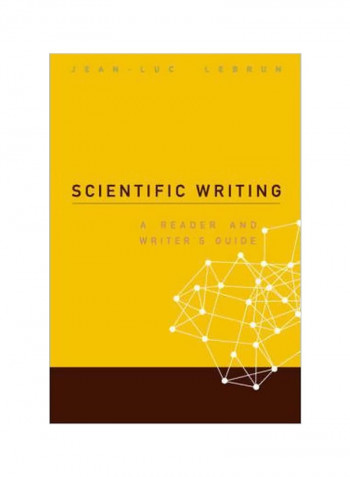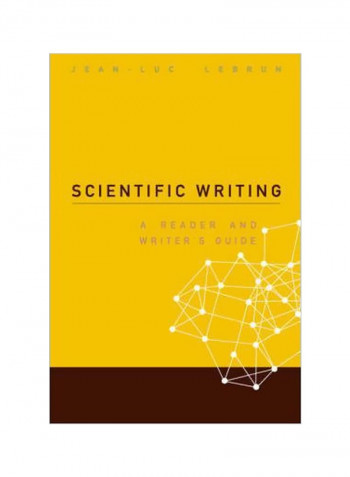Scientific Writing: A Reader And Writer's Guide Paperback
Recommend
Sort by
Rating
Date
Specifications
Author 1
Jean-Luc Lebrun
Book Description
Given that scientific material can be hard to comprehend, sustained attention and memory retention become major reader challenges. Scientific writers must not only present their science, but also work hard to generate and sustain the interest of readers. Attention-getters, sentence progression, expectation-setting, and "memory offloaders" are essential devices to keep readers and reviewers engaged. The writer needs to have a clear understanding of the role played by each part of a paper, from its eye-catching title to its eye-opening conclusion. This book walks through the main parts of a paper; that is, those parts which create the critical first impression. The unique approach in this book is its focus on the reader rather than the writer. Senior scientists who supervise staff and postgraduates can use the book to review drafts and to help with the writing as well as the science. Young researchers can find solid guidelines that reduce the confusion all new writers face. Published scientists can finally move from what feels right to what is right, identifying mistakes they thought were acceptable, and fully appreciating their responsibility: to guide the reader along carefully laid-out reading tracks.
ISBN-10
9812701443
ISBN-13
9789812701442
Language
English
Publisher
World Scientific Publishing Co Pte Ltd
Publication Date
30/Jul/07
Number of Pages
224
Editorial Review
Lebrun couples his experiences and insights from his work as a writer and filmmaker with his wisdom of people to show how to write for others ... That's why this book, and Lebrun's wisdom, is so essential, so correct, and so badly needed. -- Don Norman "My wish is that this book becomes the bedside book of all serious scientists striving to express themselves clearly in order to communicate their ideas efficiently." -- Jean-Pierre Chevallet ?My wish is that this book becomes the bedside book of all serious scientists striving to express themselves clearly in order to communicate their ideas efficiently.?



